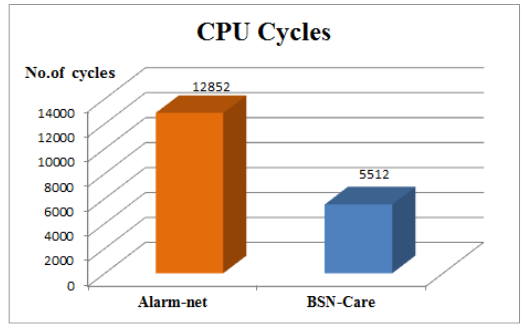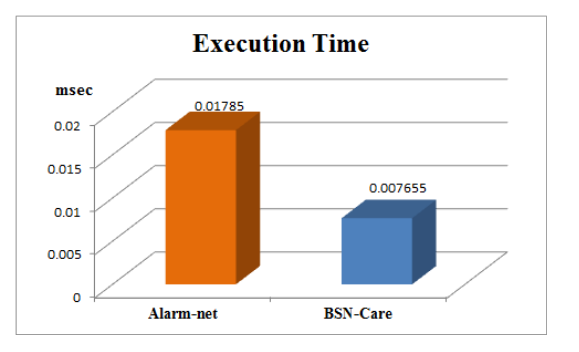ABSTRACT
Advances in information and communication technologies have led to the emergence of Internet of Things (IoT). In the modern health care environment, the usage of IoT technologies brings convenience of physicians and patients, since they are applied to various medical areas (such as real-time monitoring, patient information management, and healthcare management).
The body sensor network (BSN) technology is one of the core technologies of IoT developments in healthcare system, where a patient can be monitored using a collection of tiny-powered and lightweight wireless sensor nodes.However, the development of this new technology in healthcare applications without considering security makes patient privacy vulnerable. In this paper, at first, we highlight the major security requirements in BSN-based modern healthcare system. Subsequently, we propose a secure IoT-based healthcare system using BSN, called BSN-Care, which can efficiently accomplish those requirements.
SECURITY REQUIREMENTS IN IOT BASED HEALTHCARE SYSTEM USING BSN
Security is one of the most imperative aspects of any system. People have different perspective regarding security and hence it defined in many ways. In general, security is a concept similar to safety of the system as a whole. Now, the communication in sensor network applications (like BSN) in healthcare are mostly wireless in nature. This may result in various security threats to these systems. These are the security issues cloud pose serious problems to the wireless sensor devices. In this section, we describe the key security requirements in IoT based healthcare system using BSN.
- Data Privacy
- Data Integrity
- Data Freshness
- Authentication
- Anonymity
- Secure Localization

Table II : Security Risks to Bsn and Corresponding Security Requirements
Most BSN applications require accurate estimation of the patient location. Lack of smart tracking mechanism allows an adversary to send in correct reports about the patient location by reporting false signal strengths.
Now, in order to ensure a secure IoT-based healthcare system using BSN, it is highly imperative that the system should poses all the aforesaid security requirements and eventually can resist various security threats and attacks like data modification, impersonation, eavesdropping, replaying etc. Table II lists the various possible attacks which may occur in any IoT-based healthcare system using BSN.
RELATED WORK AND MOTIVATION
The advancement of BSN in healthcare applications have made patient monitoring more feasible. Recently, several wireless healthcare researches and projects have been proposed, which can aim to provide continuous patient monitoring, in-ambulatory, in-clinic, and open environment monitoring (e.g.athlete health monitoring). This section describes few popular research projects about healthcare system using body sensor networks.
CodeBlue is a popular healthcare research project based on BSN developed at Harvard Sensor Network Lab. In this architecture, several bio-sensors are placed on patient’s body. These sensors sense the patient body and transmit it wirelessly to the end-user device (PDAs, laptops, and personal computer) for further analysis. The basic idea of the CodeBlue is straightforward, a doctor or medical professional issues a query for patient health data using their personal digital assistant (PDA), which is based on a published and subscribed architecture.
SECURE IOT-BASED HEALTHCARE SYSTEM USING BSN (BSN-CARE)
Body Sensor Network (BSN) allows the integration of intelligent, miniaturized low-power sensor nodes in, on or around human body to monitor body functions and the surrounding environment. It has great potential to revolutionize the future of healthcare technology and attained a number of researchers both from the academia and industry in the past few years. Generally, BSN consists of in-body and on-body sensor networks.
An in-body sensor network allows communication between invasive /implanted devices and base station. On the other hand, an on-body sensor network allows communication between non-invasive/wearable devices and a coordinator. Now, our BSN-Care (shown in Fig.1) is a BSN architecture composed of wearable and implantable sensors. Each sensor node is integrated with bio-sensors such as Electrocardiogram (ECG), Electromyography (EMG), Electroencephalography (EEG), Blood Pressure (BP), etc.
ENFORCEMENT OF SECURITY IN BSN-CARE SYSTEM
We divide the all security requirements (mentioned above) into two parts: network security, and data security. Network security comprises authentication, anonymity, and secure localization. On the other hand, data security includes data privacy, data integrity, and data freshness. Now, to the best of the knowledge there is no two-party authentication protocol which can achieve all the aforesaid properties of the network security. Hence, in order to achieve all the network security requirements here we propose a lightweight anonymous authentication protocol. Subsequently, to accomplish all the data security requirements we adopt OCB authenticated encryption mode.
- Lightweight Anonymous Authentication Protocol
- Data Security in BSN-Care System
SECURITY ANALYSIS
In this section, we demonstrate that our proposed BSN-Care system can satisfy all the essential security requirements of IoT based healthcare system using BSN.
- SR1: Accomplishment of the Mutual Authentication
- SR2: Accomplishment of the Anonymity
- SR3: Accomplishment of t he Secure Localization
- SR4: Resistance to Replay and Forgery Attacks
- SR5: Accomplishment of the Data Security
PERFORMANCE ANALYSIS AND COMPARISON

Fig.3. Performance benchmarking based on CPU cycles

Fig.4. Performance benchmarking based on execution time
On the other hand, for the same purposes, the OCB based security approach requires only 55.12 × 102 CPU cycles and 76.55 × 10-4 msec, respectively, where for each block-cipher call in AES-OCB takes 6.89 × 102 CPU cycles. Therefore, OCB-based data security approach used in our proposed BSN-Care system causes less than half computational overhead and execution time as compared to Alermnet, which is greatly useful for the resource constrained sensor devices. The details of the comparison is shown in Figure3 and Figure4.
CONCLUSION
In this article, at first we have described the security and the privacy issues in healthcare applications using body sensor network (BSN). Subsequently, we found that even though most of the popular BSN based research projects acknowledge the issue of the security, but they fail to embed strong security services that could be preserve patient privacy. Finally, we proposed a secure IoT based healthcare system using BSN, called BSN-Care, which can efficiently accomplish various security requirements of the BSN based healthcare system.
Source: Wineyard University
Authors: Prosanta Gope | Tzonelih Hwang
>> Top IoT based Healthcare Projects for Engineering Students
>> IoT based Embedded Projects for Engineering Students with Free PDF Downloads
>> Latest 50+ IoT based Security Projects for Engineering Students
>> IoT based Real-Time Projects for B.E/B.Tech Students
>> 200+ IoT Led Projects for Final Year Students
